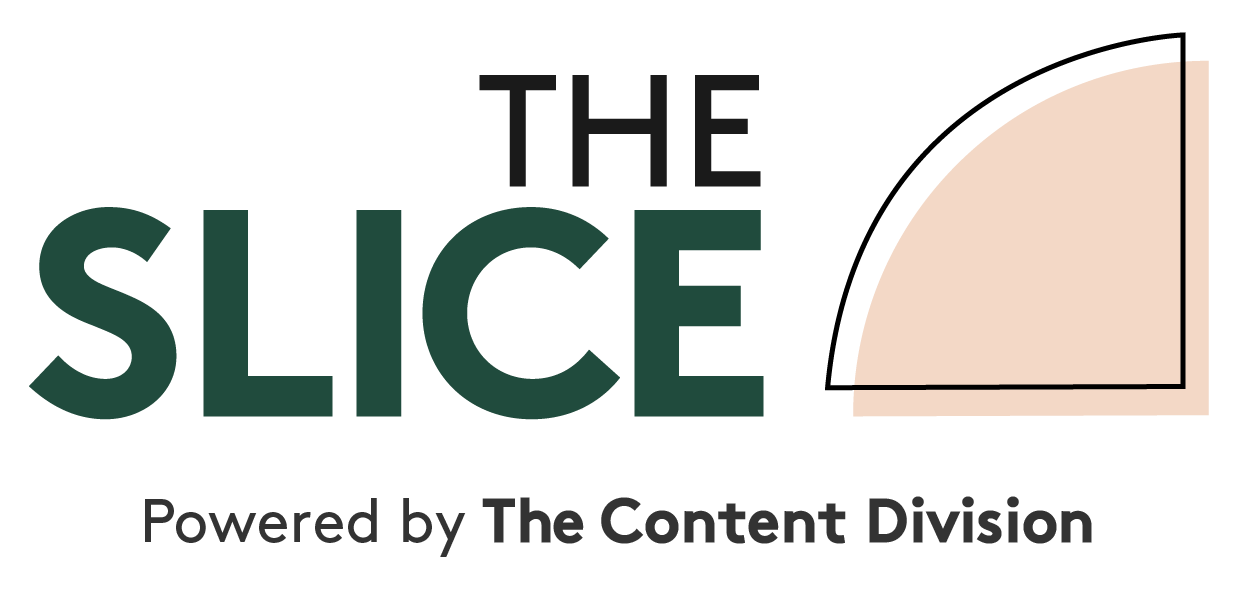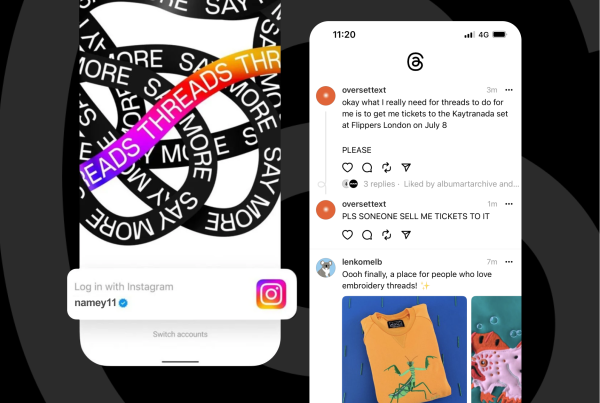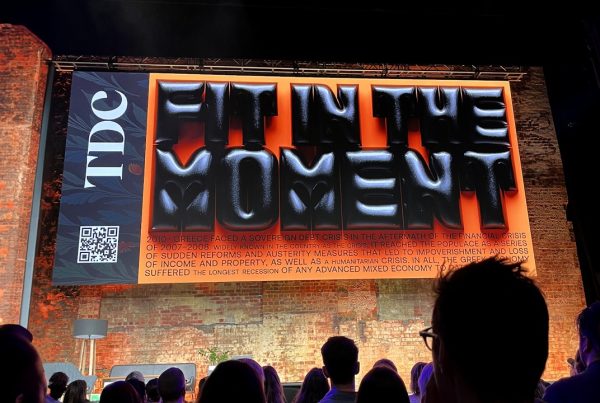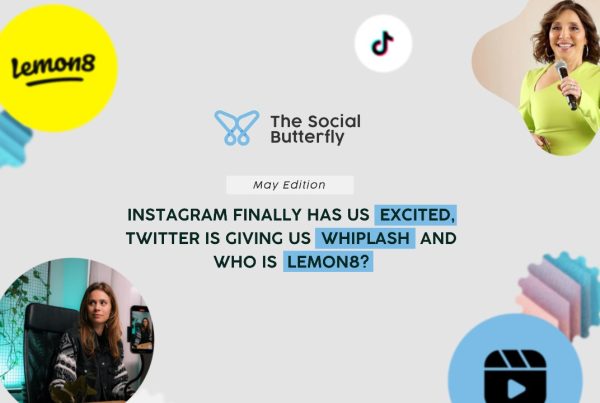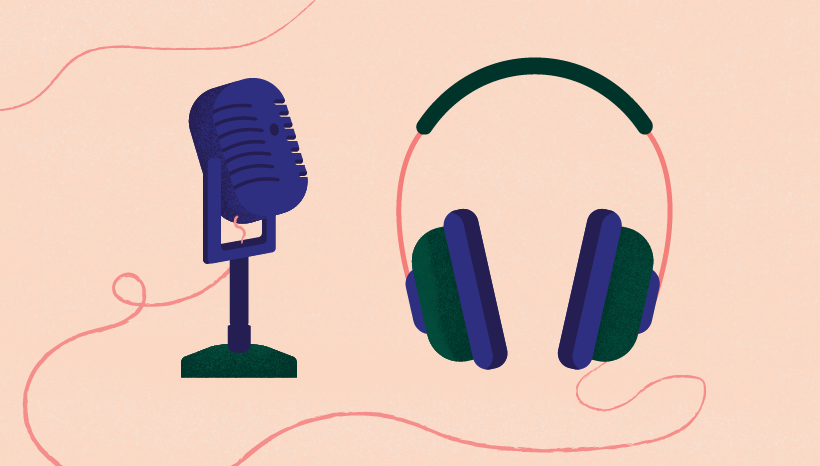
Once upon a time, the advertising on your favourite podcasts was probably limited to a few messages per episode from a handful of ubiquitous sponsors (raise your hand if you’ve ever heard a spot for Blue Apron, Squarespace or Casper). But today, there’s every chance that the entire podcast episode you’re listening to is, in effect, an ad.
With relatively low production costs and few barriers to entry, it shouldn’t come as a surprise that some brands are cutting out the middle man and making their own podcasts. What is surprising is that people are actually listening to — and enjoying — them.
With over 750,000 podcasts already out there in the world, it’s not easy for brands to cut through — but the potential rewards make the effort worth it. A successful branded podcast gives a company a chance to get into potential customers’ heads and tell their story for up to an hour or so, rather than the 30 or 60 seconds they’re usually afforded as advertisers.
Here are 10 branded podcasts that demonstrate how to make an impression on listeners.
The Message (General Electric)
The big daddy of branded podcasts is still The Message, the eight-part sci-fi series that actually topped the iTunes charts in 2015.
The Message is not explicitly about GE’s products and services. Instead, it’s a fictional story — a relative rarity for podcasts, branded or otherwise — about a team of codebreakers attempting to decipher a message from outer space. (Of course, they just happen to be using technology developed and sold by GE.)
The eight-part story played like a cross between Serial and Orson Welles’ War of the Worlds, both a throwback to the radio dramas of old and a precursor to non-branded fictional podcast serials like Homecoming. It’s had more than eight million downloads, and it won the Webby Award for the best use of native advertising in 2016.
GE and co-producer Panoply tried to capture lightning in a bottle twice with a follow-up series, lif-e.af/ter, that failed to find the same place in the zeitgeist. Panoply, once a ubiquitous name in podcasts, eventually ceased production of all its shows in 2018.
But we’ll always have The Message, which you can listen to here.
The Sauce (McDonald’s)
A straight-up parody of Serial, the deadly serious true crime podcast that defined the medium for many listeners, The Sauce took a hard-boiled ‘investigative’ approach to a deeply silly incident — that time McDonald’s underestimated demand for the reintroduction of its Szechuan Sauce.
While this might not seem like a big deal, the whole saga was a black eye for the Golden Arches. The teriyaki-flavoured sauce was originally released to tie in with Disney’s Mulan in 1998, before inexplicably becoming a major plot point on the cult TV show Rick & Morty, prompting McDonald’s to bring it back for one day only in October 2017.
Despite the viral popularity of the promotion, supply was extremely limited, with roughly 20 sauce packets each delivered to select locations around the US. Rick & Morty fans queued for hours only to walk away empty-handed, leading to protests, riots and even rumours of a stabbing at one location (the stabbing turned out to be unrelated to the sauce, but the PR damage had been done).
In 2018, McDonald’s decided to bring the Szechuan Sauce back in much larger numbers, and leaned hard into the absurdity of the whole thing by producing a three-part podcast that examined the “mystery” of what went wrong with the promotion the first time around, directly addressing a PR misstep with fun and engaging content marketing.
The show was produced by Gizmodo, and hosted by freelance writer Catherine LeClair, a vegetarian with a distaste for fast food. It broke into iTunes’ top 100 on its first day of release last year, but much like the Szechuan Sauce that inspired it, it turned out to be available for a limited time only, and can strangely no longer be downloaded.
In Your Dreams (Casper)
If you’ve listened to virtually any podcast for any amount of time, you’ve probably heard about Casper. The mattress retailer has long been one of the most prolific podcast advertisers, and in 2017, they had a crack at producing their own.
In Your Dreams, hosted by comedians Chris Gethard and Gary Richardson, explored the science of sleep, and invited a variety of guests — including Saturday Night Live’s Bobby Moynihan and former Daily Show correspondent Wyatt Cenac — onto the show to discuss their bizarre dreams and what they might mean, as well as dreams submitted by listeners.
The show was self-consciously weird, and featured a (fake) feud between Gethard and Richardson that culminated in an ‘explosive confrontation’ in its final episode. Despite lasting just eight episodes (as well as an epilogue), it was certainly memorable, and the subject matter was a smart fit with the brand.
Casper returned in 2018 with Casper The Podcast Sponsored By Casper, a meta parody of branded podcasts that was literally just a 20-minute ad for Casper mattresses. “On the one hand, it’s a thoughtful meditation on the human condition,” said the anonymous host, known only as ‘John’. “On the other hand, visit Casper.com and get yourself a mattress.”
Inside Trader Joe’s (Trader Joe’s)
As a rule, branded podcasts shouldn’t explicitly and unironically be about the brand’s products and services. But rules are made to be broken.
Inside Trader Joe’s is exactly what it sounds like — a podcast devoted to the inner workings of US grocery store Trader Joe’s. While the company is famous for doing almost no traditional marketing whatsoever, they certainly have no problem promoting their products, their friendly staff, their approach to sustainability and more on this podcast, which is now in its fourth season (each consisting of five episodes).
Despite the fact that the podcast is a blatant and unashamed ad for Trader Joe’s, it has been ranked in the top five on the iTunes chart. Of course, it helps that Trader Joe’s already had a community of loyal customers who don’t see it as just another supermarket — it’s difficult to see Australian shoppers tuning in en masse to a podcast about the inner workings of Coles, Woolworths or IGA, no matter how well-executed it was.
But by going inside annual meetings, following the journey products go through before arriving on store shelves, and talking openly about products that failed, Inside Trader Joe’s gives people the impression that they’re seeing behind the curtain, and really getting to know the people behind the brand. They’ve taken full advantage of the opportunity that podcasts offer to engage with customers for longer than a 60 second ad spot.
Keeping You Organized (Smead)
A provider of solutions for efficient document management, Smead manufactures manilla folders that… sorry, I passed out there for a second, but you get the idea.
While their products are very, very boring, the company has created a popular branded podcast that’s been running since 2013. Keeping You Organized is not about manilla folders — rather, host John Hunt (Smead’s marketing manager) wrangles a professional organiser every week to discuss ways to get your life in order, from how to make good habits stick to tips for helping people with ADHD get organised.
Coinciding with the rise of Japanese organising consultant Marie Kondo since the first English translation of her work in 2014, Keeping You Organized offers listeners genuinely useful advice and information that aligns with the brand’s messaging and builds loyalty without feeling like an ad.
Which is not to say that the show doesn’t help the company move products — while there is very little data available on how much branded podcasts actually help to boost sales, Hunt uses strategically timed announcements on Keeping You Organized to help the company sell its inventory of wildly boring folders.
#LIPSTORIES (Sephora)
After hosting live recordings of the beauty podcast Glowing Up at its stores in Chicago, New York and San Francisco, French cosmetics giant Sephora made its own entry into the world of branded podcasts with #LIPSTORIES.
A collab between Sephora and the Girlboss Radio Network, the #LIPSTORIES podcast was part of the campaign launch for the lipstick line of the same name.
The show just wrapped its second season (each consisting of six episodes, as well as a bonus live episode). Each episode, hosted by body-positive fashionista and ‘confidence curator’ Kristina Zias, features a female influencer and thought leader — from organic tampon subscription service founder Molly Hayward to art curator and social activist Kimberly Drew — sharing their personal stories, discussing self-image and self-esteem, and remembering moments when they felt ‘beautiful, powerful, or like their best selves’.
On the surface, podcasting might seem like an awkward fit for a beauty brand. It’s obviously not a visual medium, and podcast listenership as a whole tends to skew male. But with a focus on empowering and inspiring listeners with honest and engaging storytelling, the #LIPSTORIES podcast perfectly complements the lipstick line’s tagline — ‘lipstick for real life’ — and helps to establish its authenticity in the minds of listeners.
The Distance / Rework (Basecamp)
There are no shortage of podcasts about start-ups and exciting new tech innovations, so Basecamp — a US web development company known for its eponymous project management app — decided to zig when everyone else was zagging. They focused their branded podcast, The Distance, exclusively on small businesses that have survived for 25 years or more.
Over the course of three years, Basecamp interviewed dozens of business owners across a broad range of industries, from laundromats to tiki bars, about their business models and practices in a bid to unlock the secrets to their longevity.
The podcast paired perfectly with the brand’s focus on project management and organisation — you don’t find a lot of disorganised businesses that have lasted for a quarter of a century — and covered its niche subject matter in interesting, bite-sized 15-minute episodes.
In 2017, Basecamp — perhaps having exhausted the supply of willing small-business owners that met its requirements for appearing on the podcast — ended The Distance and launched ReWork, a podcast full of unconventional wisdom and advice from Basecamp’s co-founders and other business owners, tied to the company’s best-selling book of the same name.
On Life and Land (John Deere)
Manufacturing powerhouse John Deere are pioneers in the world of content marketing. They began printing their own magazine, The Furrow, in 1895, long before terms like ‘content marketing’ or ‘branded content’ had even been coined. From the beginning, the magazine — which is still being published today — focused on farmers, rather than John Deere equipment.
The company finally got into the branded podcast game in 2018 with On Life and Land, a show that takes deep dives into agriculture and rural life — essentially, an audio version of The Furrow. Subjects covered so far have included everything from depression and mental illness among the farming community to architecture and ‘ridiculously good’ cheeses.
While podcast stats are notoriously difficult to verify, the company claims to be receiving more than 5,000 downloads per episode — not a number that jumps off the page, but one they say they’re happy with, because of the niche and in-depth nature of the content. “These are 5,000 people who are spending one hour with us every two weeks,” David Jones, publications manager at John Deere, told AdAge earlier this year.
Hackable? (McAfee)
We’ve all seen movies where malicious hackers can crack seemingly secure systems and ruin lives with a few keystrokes — but just how realistic are these scenarios? Like a Mythbusters for hackers, cybersecurity provider McAfee’s Hackable? puts hacks inspired by movies and TV shows to the test.
Each episode, a ‘white-hat’ hacker is invited to try to crack a device being used by host Geoff Siskind. Over the course of the series, he’s put his own passwords, credit cards and laptop on the line, and was once trapped in an internet-connected car wash.
The branded nature of Hackable? is not exactly subtle — the whole point of the show is to highlight weak points and susceptibilities to cyberattack that might lead listeners to decide they require the protections offered by McAfee. But the podcast still provides a lot of entertainment value for its listeners, and McAfee claims it has been downloaded millions of times on its way to being named the Best Branded Podcast at last year’s Shorty Awards and Digiday Content Marketing Awards.
Tough Conversations with Henry Rollins (Mercedes-Benz)
Mercedes-Benz is not a brand known for its toughness, or for its working-class appeal, so the announcement of the X-Class — a ute entering an Aussie marketplace dominated by the Toyota HiLux and Ford Ranger — was met with its fair share of eye-rolls.
Tasked with shifting perceptions about Mercedes-Benz, Australian ad agency The Royals decided to tackle the concept of ‘toughness’. In a left-field move, American punk rocker turned motivational speaker Henry Rollins was recruited to host Tough Conversations, a series of five podcasts in which Rollins travelled around Australia in an X-Class, talking to various locals — including surfer Mick Fanning, rapper Briggs and City of Sydney Lord Mayor Clover Moore — about what toughness means to them.
Rollins’ involvement generated a significant amount of press coverage for the podcast, which was complemented by Facebook and Instagram Stories documenting his trip around the country. The Tough Conversations podcast was ranked number one on Australia’s Apple podcast chart within 48 hours of its launch, and ultimately generated just under 10,000 registrations of interest in the X-Class, earning the show the Branded Podcast award at this year’s Australian Podcast Awards.
If this list proves anything, it’s that there is no ‘right’ way to approach a branded podcast. Whether your show is fictional or factual; hosted by a celebrity or an employee; and takes a subtle approach to branding or shoves it unapologetically into the listeners’ ears, the only real constant in the success of these podcasts is that they hold the interest of their target audience.
If you can do that, you’ll always find listeners — brand or no brand.
